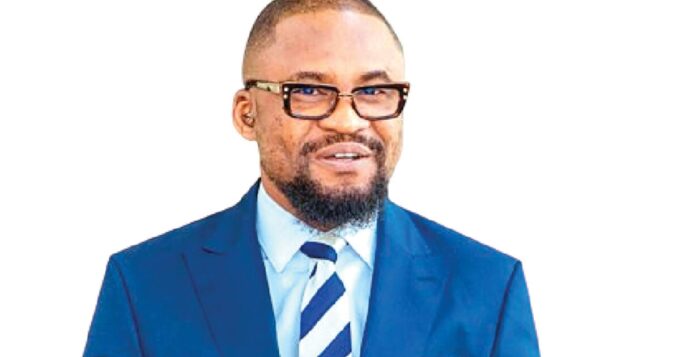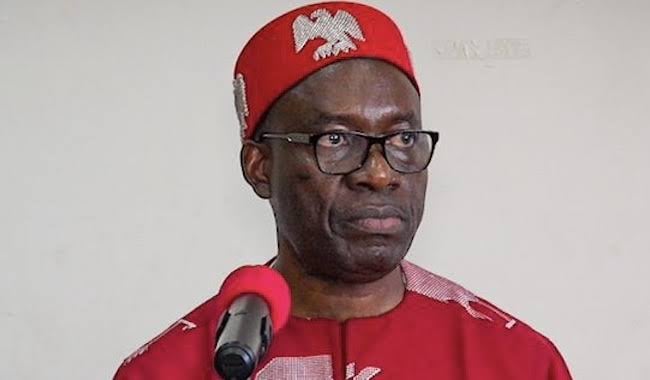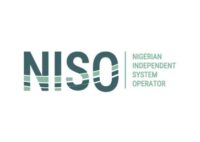•Pushes to dismantle trade barriers
By Chinelo Obogo
When African leaders convened in Abuja for the inaugural West Africa Economic Summit (WAES) in June, the spotlight was on the structural and policy bottlenecks that have long hindered the full potential of intra-regional trade across the subcontinent.
At the summit themed; “Unlocking Trade and Investment Opportunities in the Region,” the African Continental Free Trade Area (AfCFTA) was a central part of the discussion, with the federal government leading the charge towards ensuring a more integrated and resilient region.
AfCFTA aims to connect 1.3 billion people across 55 countries with a combined GDP of $3.4 trillion, but efficient transportation of goods and people within the free trade area is crucial for the success of the initiative.
However, the lack of full implementation of the African Union’s Single Africa Air Transport Market (SAATM) is a major obstacle to AfCFTA because protectionist aviation policies by many African countries have hindered the realisation of its full benefits.
Richard Kyereh, an aviation expert at the aviation policy think-tank, Centre for Aviation Policy and Development, Africa (CAPDAfrica), told AviationGhana that for AfCFTA to be a true game-changer, the SAATM aspect of things must be considered as soon as possible. SAATM is a flagship program of the AU Agenda 2063 which seeks to create a liberalised single air market for the movement of persons and goods within the African continent. However, despite the fact that many African countries have signed up to SAATM to take advantage of the benefits of open skies, most continue to maintain protectionist regimes.
At the recent International Civil Aviation Organisation (ICAO) symposium in Zimbabwe, the Director General of the Nigeria Civil Aviation Authority (NCAA), Captain Chris Najomo, said African governments are aware that liberalisation is best for air connectivity, but they find it difficult to embrace it. Instead, they practice protectionism to shield their airlines from competition due to the fear that liberalisation will undermine their national carrier’s market share and profitability. He pointed out how many African states have delayed the implementation of SAATM because of the fear that they will lose control of certain routes which may negatively impact their national airlines. He also said that many African states have not yet developed robust economic regulations to provide the needed assistance in balancing the needs for liberalisation of the regional routes. He also pointed out the visa barriers which have hindered the ease of movement of passengers and goods.
He then stated that President Bola Tinubu has prioritised aviation infrastructure development and regional airline partnerships as strategic tools to drive national economic growth, improve connectivity, and strengthen regional integration. The Nigerian government, he said, has in the last three years allocated funds in its annual budget for key infrastructure projects for the construction and upgrade of airport infrastructure and is focusing on expanding cargo facilities and integrating them with Special Economic Zones (SEZs) to promote exports.
African Continental Free Trade Area
Nigeria signed the AfCFTA agreement in July 2019 and ratified its membership on December 5, 2020, becoming the 34th country to do so. As the largest economy in Africa, Nigeria’s participation was considered very significant for the success of the initiative.
At the WAES, President Tinubu and the Minister of Foreign Affairs, Yusuf Tuggar, highlighted the importance of deepening regional trade links in line with the AfCFTA, and at the core of the conversation is the fact that one of the most critical impediments to intra-regional trade is Africa’s poor transport infrastructure.
President Tinubu emphasised that intra-regional trade remains under 10%, a challenge he said West Africa can no longer afford to ignore. He pointed out that the low trade is not due to a failure of will but a coordination failure. He emphasised that the global economy will not wait for West Africa to get its act together, and rather than competing in isolation or relying on external partners, the region must strengthen its value chains, invest in infrastructure, and coordinate its policies.
He said: “Our prosperity depends on regional supply chains, energy networks, and data frameworks. We must design them together or they will collapse separately. We must move from declarations to concrete deals; from policy frameworks to practical implementation. Let us also recognize that Africa was left behind in previous industrial revolutions. We cannot afford to miss the next one. Our rare minerals power tomorrow’s green technologies, yet it is not enough to be resource-rich; we must become value-chain smart and invest in local processing and regional manufacturing. The era of ‘pit to port’ must end.
“Governments must provide the right environment: law, order, and market-friendly policies, while the private sector drives growth. Our task is to find new and effective ways to invest in our collective future, improve the business climate, and create opportunities for our youth and women. Let us emerge from this summit with a renewed commitment to ease of doing business, enhanced intra-regional trade, improved infrastructure connectivity, and innovative ideas that move our people from poverty to prosperity.”
Tuggar said during his speech that the government does not intend to reinvent the wheel but to build on what the region has and to find new ways that add momentum to the search for peace and stability, prosperity, and growth. He pointed out that in 2024, West Africa exported goods valued at over $166 billion, yet only 8.6 percent of that trade remained within its borders. Imports follow the same patterns, which are heavily tilted toward partners outside the continent. “Machinery and manufactured goods from China, India, the United States, and the European Union dominate our import flows, while we continue to export unprocessed raw materials. This trajectory is untenable, and the issue is not just capacity, but orientation,” he said.
Tuggar added that though the informal sector finds ways to deliver what the market wants by bypassing borders and regulations when they are too slow and bureaucratic, African governments in the region need to do more to make it easy to bring that activity within the formal sector, to bring with it the economies of scale and other efficiencies that will accelerate growth and help entrepreneurs. “This is already happening: this Summit, as envisioned by President Tinubu, is the chance to build on that change,” he said.
The Foreign Affairs Minister said the job of African governments is to help find the best way to deliver goods and services to its people, to help the private sector and the free market to generate investment and build capacity. He said: “West Africa, for centuries an equal partner in international trade, was left behind by the industrial revolution and patterns of development that reduced our comparative advantage and still leaves us struggling for fair access to markets and finance. One example: we pay the costs for the climate emergency but received few of the benefits of the process that created it. Competition is healthy, and it is in our common interest to keep that competition healthy and positive for all stakeholders. As a region, West Africa has the scale, talent, and critical mass that no individual state alone can match. Let’s stop outsourcing the future and take back control of our destiny.”
While discussing how to improve West Africa’s intra-regional trade, Dr. Abisoye Coker-Odusote, who is the Director-General/Chief Executive Officer, National Identity Management Commission (NIMC), said in his keynote address that West Africa’s trade landscape is dynamic but underutilized. He said while official data from the Economic Community of West African States (ECOWAS) shows only 10–15% of trade is intra-regional, informal commerce could raise that figure significantly. Annual trade within ECOWAS averages about USD 208 billion, with Nigeria accounting for roughly 76% of regional flows.
He however stated that one of the major obstacles to intra-regional trade is the difficulty individuals and small businesses face in verifying their identity across borders, which has led to transactional friction, limited access to formal financial services, and a lack of trust in cross-border operations. He said a unified digital identity infrastructure will serve as the foundation upon which seamless trade, payment interoperability, and cross-border services can be built. He said this is where the African Continental Free Trade Area (AfCFTA) stands to benefit most. The AfCFTA aspires to create the world’s largest single market, yet its success depends on people’s ability to engage in that market efficiently and securely. Coker-Odusote revealed that across West Africa, identity management systems are at different stages of development. Nigeria, through the National Identity Management Commission (NIMC), has enrolled over 120 million citizens under the National Identification Number (NIN) system, and major issues of harmonization and duplication have been effectively addressed. Ghana’s digital ID system, managed by by the National Identification Authority, is widely integrated across banking, voting, and public services. Côte d’Ivoire and Senegal have also made notable progress with biometric systems linked to social programs. However, several countries, including Guinea, Sierra Leone, and Liberia, still face gaps in coverage and interoperability. This disparity, he said, weakens cross-border trade, mobility, and trust. For meaningful regional integration, identity must be reliable, digital, and recognized beyond national borders.
He further said that governments of West African nations must prioritise digital identity as infrastructure, just as vital as roads, ports, and power. This means allocating national budgets to identity programs, embedding identity into trade and financial policies, and ensuring legal frameworks enable cross-border recognition of credentials. He advised that identity management agencies such as Nigeria’s NIMC, Ghana’s NIA, and their counterparts must strengthen cooperation to achieve interoperability across systems. This includes adopting shared technical standards, synchronizing enrollment protocols, and supporting countries still in the early stages of implementation through knowledge exchange and capacity building.
ECOWAS and WAEMU must take the lead in institutionalizing this agenda at the regional level, he said. This includes establishing a West African Digital Identity Working Group, introducing a regional digital ID charter, and investing in infrastructure that supports cross-border identity verification for trade, migration, and security. “The Private Sector, especially banks, fintechs, telcos, and logistics firms, must be active partners. They must integrate digital ID verification into their onboarding processes, build digital trust networks, and offer inclusive financial products tailored to newly identified individuals and small-scale traders. Civil society, local communities, and traditional leaders must help drive grassroots awareness and adoption.
“Digital identity, when harmonised across borders, becomes the trust layer that supports this market. It ensures that an entrepreneur in Cotonou can transact confidently with a supplier in Kano or a logistics partner in Accra. With such trust in place, transaction volumes increase, new markets are unlocked, and the AfCFTA goals, especially around inclusive trade and poverty reduction, are met more quickly and sustainably,” he said.
















Leave a comment